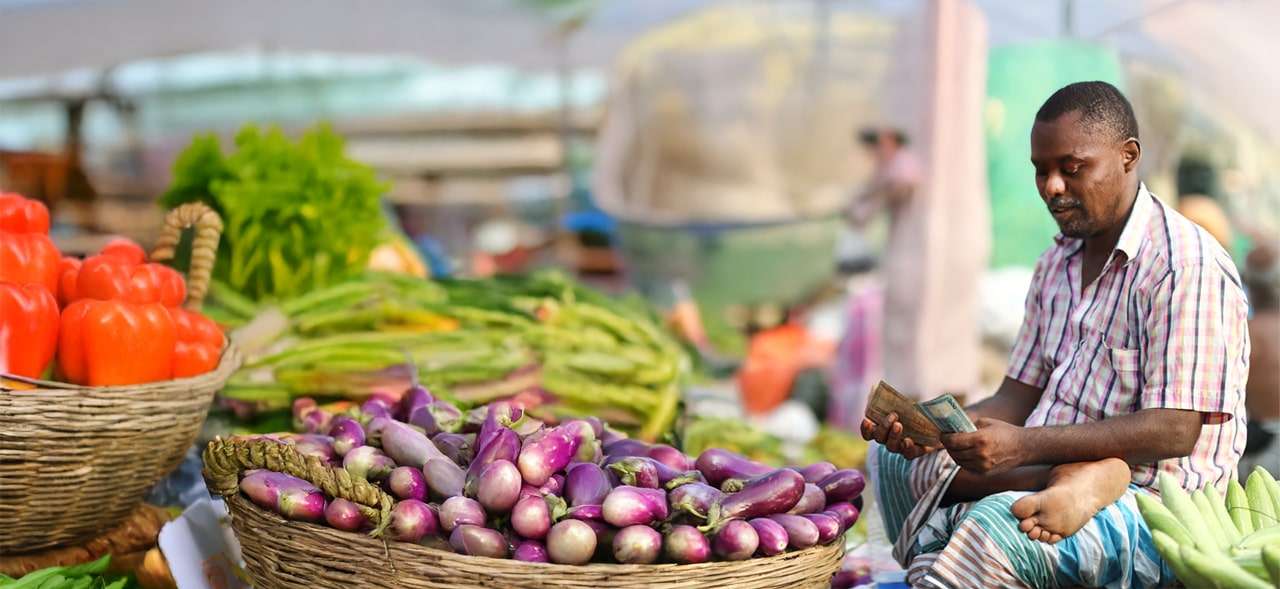
Shakti Foundation for Disadvantaged Women (SFDW), a leading microfinance institution (MFI) in Bangladesh, provides credit and savings products to low-income women. To reduce inherent risks of cash-intensive operations and diversify its offerings, SFDW sought to adopt digital solutions and expand its product portfolio.
MSC supported SFDW in its digital transformation journey and provided technical assistance to design and implement new financial products and processes. Our team introduced an MSME loan product and voluntary savings products intended to expand the customer base and enhance financial inclusion.
We co-created a mobile-based application with SFDW’s field and IT teams that enabled loan officers to perform core MFI operations using mobile phones. We also supported the design and pilot of agent-assisted savings deposit and withdrawal services to enhance client accessibility.
As part of the engagement, MSC conducted a strategic business planning workshop and designed an enterprise resource planning (ERP) system to streamline operations and enable real-time data access from the field. The field application was pilot-tested for usability, and product features were refined based on customer feedback and usage analytics.
As a result of MSC’s support, SFDW successfully opened over 350,000 voluntary savings accounts and built a portfolio valued at USD 10 million. The disbursement amount increased by 12 times, from BDT 87.3 million (USD 1.02 million) in July 2019 to BDT 1,108.07 million (USD 13.03 million) in June 2021.
This initiative has positioned SFDW to operate more efficiently, manage risks effectively, and better serve its growing customer base.
MetLife Foundation commissioned the project.
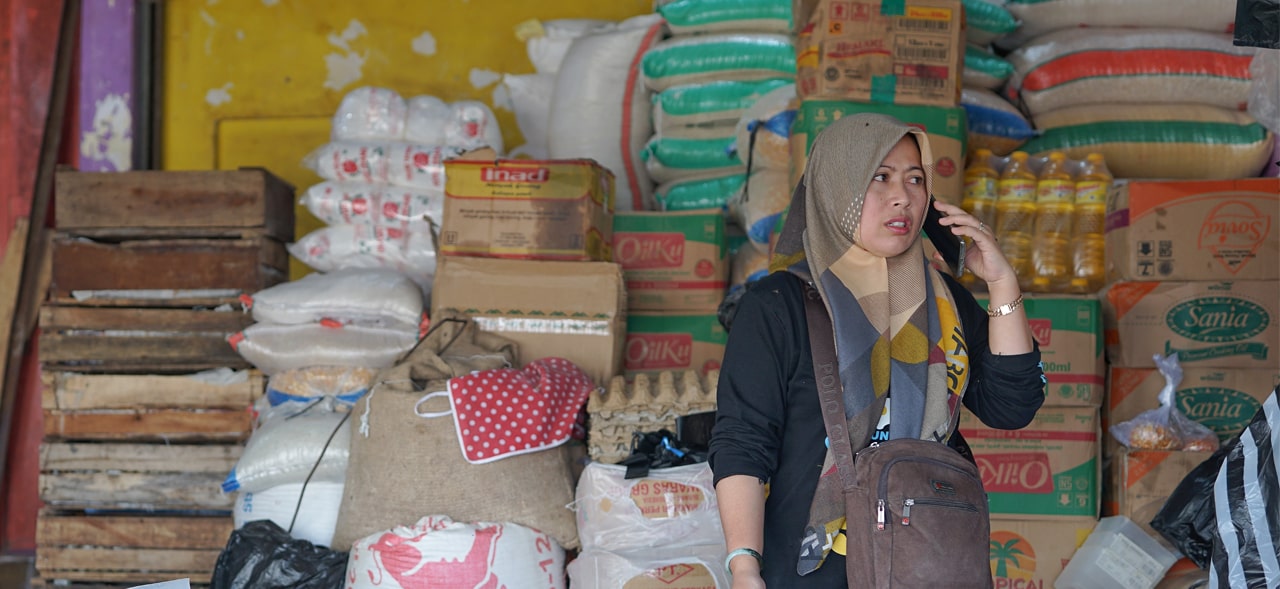
PT Bina Artha Ventura (BAV) is a non-bank microfinance institution in Indonesia that offers microfinance products to low-income people using the group-lending methodology. MSC was commissioned to provide technical advisory to BAV to expand its outreach and portfolio in microenterprise financing.
We supported BAV in product design, pilot planning and implementation, process design, capacity-building, and rollout. The advisory included demand-side research, credit product development, and the finalization of delivery channels for sourcing, disbursement, collection, and payments. We also helped design internal processes for operations, financial and accounts management, and human resource management.
The project concluded with the implementation of a pilot test. BAV now serves more than 25,000 MSMEs through this loan product.
IFC commissioned the project.
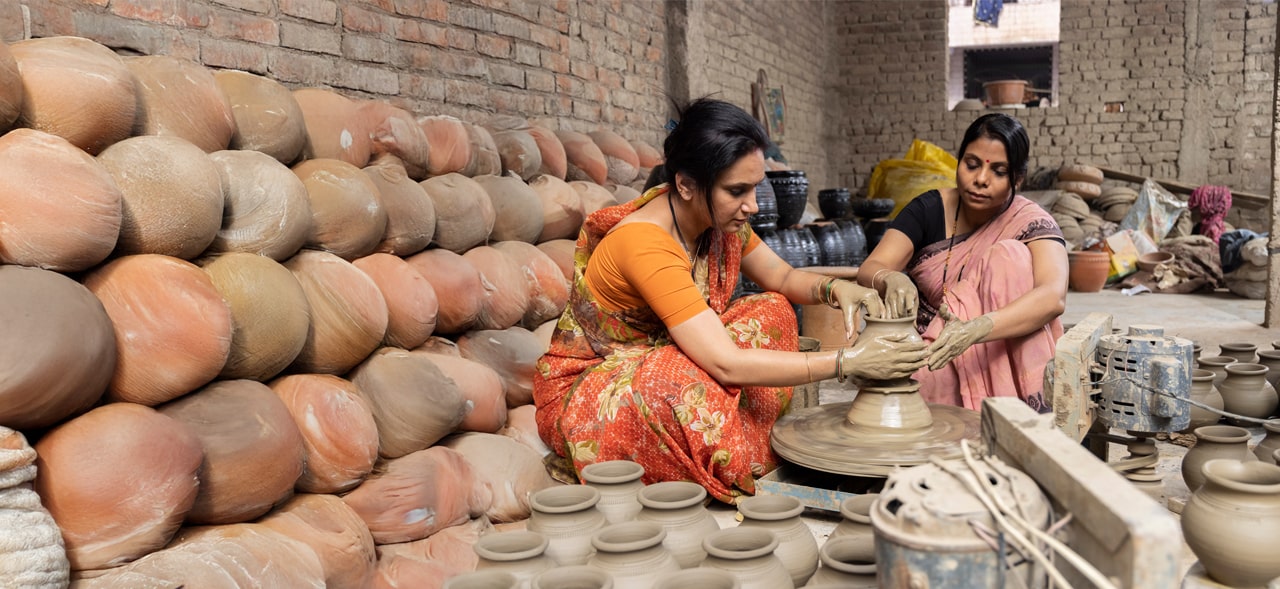
Micro and small enterprises (MSEs) in India, particularly women-owned businesses, continue to face significant barriers in accessing formal credit. These include limited access to tailored financial products, inadequate working capital support, and a lack of suitable digital financing channels. To address these challenges, MSC supported a high-impact initiative with India’s Principal Financial Institution (FI) for MSMEs to design and roll out digital enterprise financing solutions. The project aimed to unlock access to affordable credit and enterprise support services for MSEs—particularly women-owned enterprises—through technology-enabled, paperless financing models.
A key innovation under this initiative was the design of a digital, invoice-based financing (IBF) product tailored for fair price shop (FPS) dealers. In partnership with the Department of Food and Public Distribution (DFPD), the solution helped FPS owners access working capital credit against verified purchase invoices. This financing mechanism supported the transformation of over 500,000 FPS outlets into Jan Poshan Kendras (JPKs)—nutrition-focused retail points offering affordable, non-PDS food products.
In collaboration with the Principal FI, MSC led the development and pilot of the IBF solution. The product was iteratively tested and refined to address the liquidity constraints of FPS dealers, enable real-time credit access, and integrate it seamlessly with partner platforms. One pilot partner is now scaling the product across states, based on evidence generated through MSC’s engagement.
This initiative contributes to the Gates Foundation’s broader goal of driving inclusive financial access for underserved enterprises. Insights from this project inform future investments and policy efforts to build sustainable, tech-enabled credit solutions for women entrepreneurs and rural enterprises.
The Gates Foundation commissioned this project.
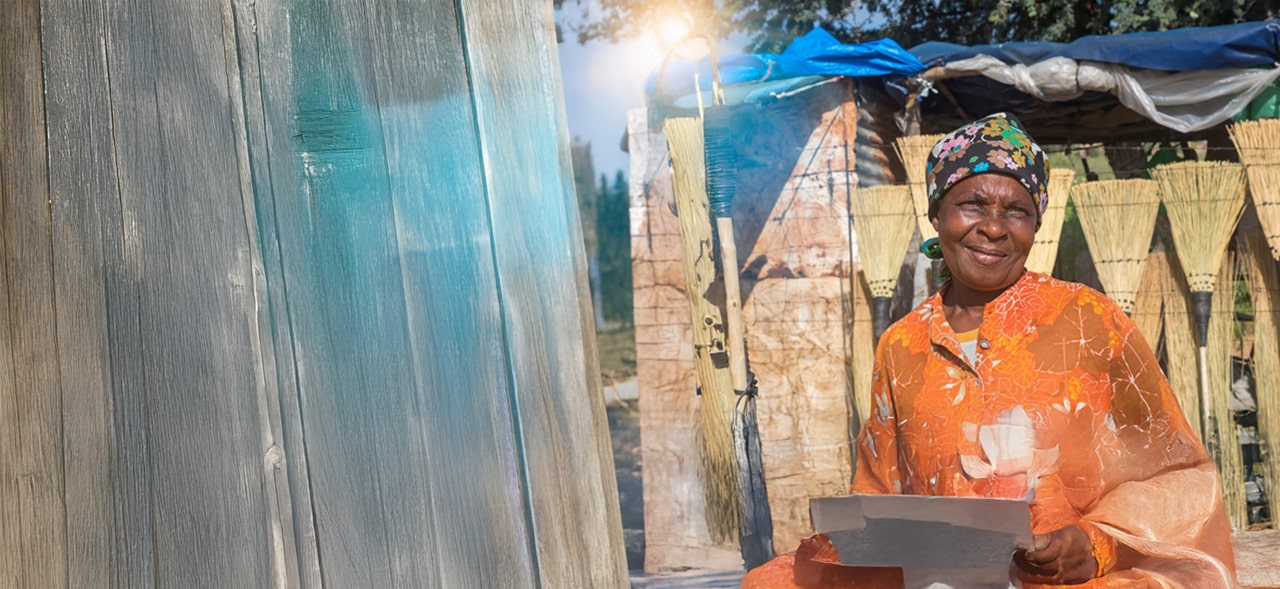
Across sub-Saharan Africa, many women who run small and informal businesses struggle to access affordable, productive credit. The impact of COVID-19 worsened this, limiting women’s ability to grow their enterprises and improve their livelihoods.
To address this, MSC developed a clear business case to expand microfinance solutions tailored to women-led businesses. We began by looking at what works, drawing lessons from successful models in Asia, Latin America, and parts of Africa. Our research focused on what enables financial institutions to deliver meaningful credit to women, which included supportive policies, strong delivery models, relevant partnerships, and products that can scale.
From over 130 financial institutions reviewed in Kenya and Uganda, we identified five with strong potential: KCB Kenya, BRAC Uganda, FINCA, Stanbic Kenya, and Stanbic Uganda. MSC partnered with each one to co-design and test credit products for small-scale women entrepreneurs. We supported them through every step, from shaping the product concept and testing prototypes, to developing pricing strategies and exploring alternative ways to assess creditworthiness.
We also provided guidance on how to unlock low-cost, long-term capital to support future growth through second-tier financing mechanisms.
This work has helped lay the foundation for financial products that meet the real needs of women entrepreneurs, offering both impact and sustainability.
The Gates Foundation commissioned this project.
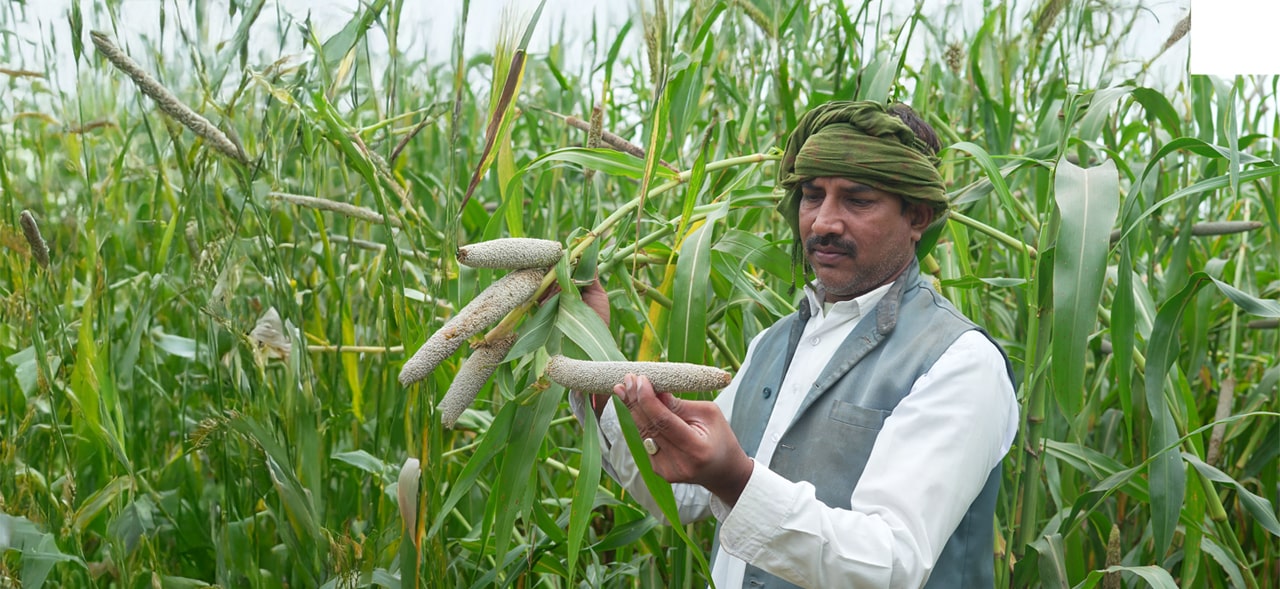
As climate risks intensify, vulnerable populations in countries like Nigeria and Bangladesh face growing challenges to their livelihoods. Frequent and unpredictable disasters, such as droughts, floods, and cyclones occur with increasing frequency and unpredictability, rapidly eroding household resilience. Traditional climate interventions often overlook financial strategies at the household level. CGAP recognized this gap and partnered with MSC and Decodis to explore how low-income communities cope with these shocks and the role financial services play in their response.
MSC and Decodis conducted a comprehensive demand-side study in Nigeria and Bangladesh to generate firsthand insights into how vulnerable households experience and respond to climate events. The study used a mix of qualitative and quantitative research methods in both countries to capture detailed insights into financial behavior during and after severe weather events. The research documented how households prepare for and recover from climate shocks, the financial tools they use, such as microfinance, remittances, and mobile money, and what services they wish they had to support adaptation. MSC and CGAP then held a series of workshops to discuss the findings.
The research offered rich insights into the lived experiences of climate-affected communities and how they build and lose resilience between events. It highlighted gaps in financial services and guided stakeholders on how to design responsive climate-aligned financial products. These insights are shaping CGAP’s broader efforts to align financial inclusion strategies with climate adaptation goals.
Consultative Group to Assist the Poor (CGAP) commissioned the project.
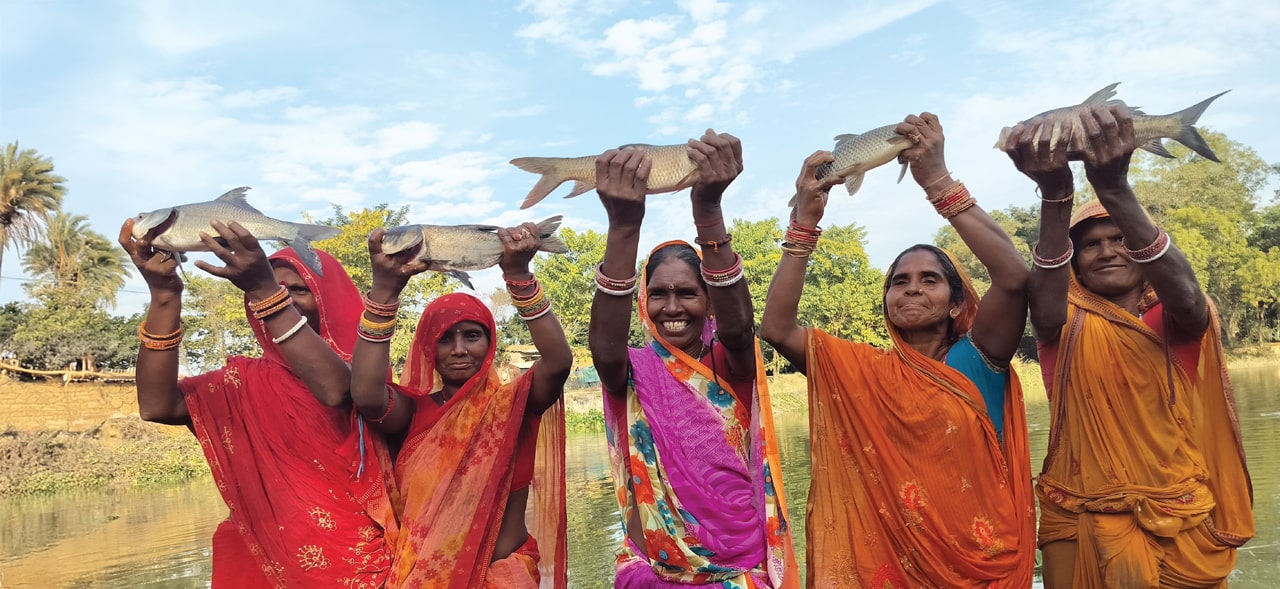
The eastern Indian state of Bihar offers significant potential to use aquaculture and fisheries as a means to improve nutritional outcomes, enhance food security, and create diversified and sustainable livelihood opportunities, particularly for women-led community groups. MSC recognized this potential and conducted an in-depth baseline study to inform strategic interventions and guide investment in the state’s fisheries sector.
MSC employed a mixed-methods approach that combined quantitative and qualitative research tools for actionable insights. The study covered 12 districts in Bihar and included a quantitative cross-sectional survey of more than 1,200 fish-farming households, focus group discussions (FGDs) with both men and women, and key informant interviews (KIIs) with sector experts and community leaders.
The study seeks to understand in detail the current state of aquaculture, women’s empowerment in the sector, and the health and nutrition profiles of households engaged in aquaculture and fisheries livelihoods. MSC used baseline findings to align and contextualize the interventions under this investment. These tools are now being used in the endline assessment to track changes and progress in the parameters. A final assessment is underway to evaluate the program’s progress and achievements against its objectives.
The Gates Foundation commissioned the project.





